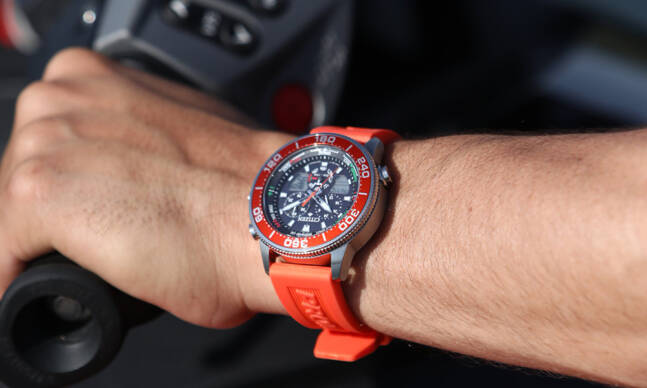Over the last few decades, Highlander, Russell Mulcahy’s 1986 fantasy cult movie, has received more home video releases than Connor MacCleod has taken heads from immortals in sword fights. But Lionsgate’s recent 4K update, now available in a handsome new package, opens the door for the obvious eye-roller: There can be only one copy of Highlander on your shelf, and it should be this one. As raggedy jokes go, of course, this one’s on the money, assuming admixtures of sword and sorcery flicks, Scottish clan war epics, and grungy police procedurals are to your taste. If so, make this your next essential pickup.
The story begins in the 1500s, where Connor (Christopher Lambert), a Scottish soldier of Glenfinnan, discovers he’s an immortal after sustaining a fatal blow in battle by a menacing brute known as the Kurgan (Clancy Brown), who also happens to be an immortal as well as a murder-happy, power-grubbing maniac. Banished by his own clan, Connor is found in exile by Juan Sánchez-Villalobos Ramírez (Sean Connery), a raffish, millenia-old Egyptian knight-errant with an out of place Scottish burr, who schools Connor in the ways of immortality and trains him in the dueling arts; there are good immortals like Ramírez, and lunatics, like the Kurgan, bent on slaying his fellow immortals to gain their energy and win the Prize – the combined mojo of every immortal who ever lived.
It’s the basis for a dark fantasy movie set in the Late Middle Ages, but a little over half of Highlander actually takes place in New York City in the film’s “present day.” This means Mulcahy can claim the dubious honor of quite possibly being the only director in film history to splice scenes of rugged Scottish mountain ranges with now partially documentarian scenes of 1980s New York. Mulcahy’s work as Highlander’s Mayor McCheese is broadly patchy, but his ingenuity with transitions between the todays and yesterdays is remarkable. In the first flashback of many, Gerry Fisher’s camera floats through Madison Square Garden’s parking garage ceiling after MacLeod duels and beheads the Frenchman Iman Fasil (Peter Diamond, pulling double duty as Mulcahy’s stunt coordinator), leaving behind concrete ruin and whisking the audience away to Loch Shiel, moments before MacLeod’s fateful encounter with the Kurgan.

It’s a genius flourish, seamless and sleek, where Lionsgate’s efforts on the film’s transfer are perhaps best defined. Sequences shot in lower light verge on over-pixelation in their grain field; brightly lit sequences, particularly those shot outdoors, look breathtaking, surprisingly gorgeous for a cult movie about scads of undying swordsmen each trying to separate the others’ heads from their shoulders for the honor of getting mauled and zapped by lightning demons for several agonizing minutes (which, for them that’s being mauled and zapped, probably feels more like an eternity). That’s the price you pay for attaining omniscience over all mankind. If it was easy and painless, anyone could do it.
Highlander’s visuals clang against its unflattering components, like, tragically enough, its action. Clashes between MacLeod and the Kurgan, his only opponent in the film apart from Fasil, are either awkward or downright bad, with choreography that revolves around basic sword strikes – high, low, parry, parry, parry, lather, rinse, repeat – and bursts of either pyrotechnics or set destruction as occasion demands. Centuries of pugilistic experience don’t show on screen. According to appearances, these characters are novices, not masters; they may just as well be touching a blade for the first time in their lives. Only Brown reads as a hardened warrior through his fearsome, extravagant performance, which, like Connery’s flamboyant roguishness and even Lambert’s stiff primitivity, is one of Highlander’s true merits.
The least an action movie should do, for truth in advertising, is stage good action. But Highlander is such a one of a kind blend of unrelated categories that the blending is the draw, not the action; it’s a masterpiece of 1980s weirdo genre cinema. What Lionsgate’s 4K showcases, tucked into that very niche identity, is a superb aesthetic sense, because genre movies maintain artistic merit and creative worth, even when they’re wrapped in stilted, oddball storytelling. Highlander spawned a whole generation of films that slap genres together like they’re tossing cooked spaghetti at a wall. 36 years later, there’s still nothing else like it.





